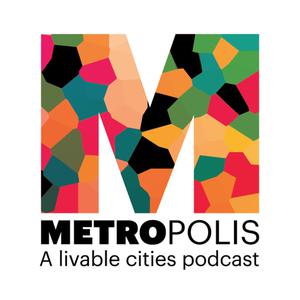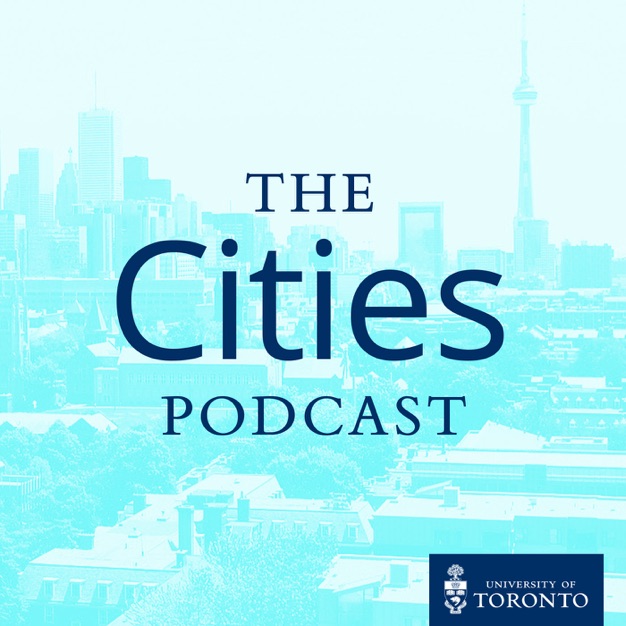
Electric Cities
ULI Toronto
ULI Toronto presents Electric Cities, a podcast about land development and planning across the Toronto region. Hosted by Jeremy Warson, the podcast features conversations with leaders and experts from a wide range of disciplines. With Seasons 1, 2 and 3 now complete, there are plenty of interesting topics to choose from, such as trends in the condo, retail and office markets; and discussions on housing affordability, municipal governance and transit oriented development to name just a few.
- 41 minutes 18 secondsS7 Episode 3: Local Ratepayer Response to Missing Middle Housing
Enabling missing middle housing as an as-of-right housing type in low-rise residential neighbourhoods has become a hot topic in recent months as a possible solution to address the housing affordability crisis. And it is has gained the support of provincial policy makers and industry representatives. But not everyone is fully on board, particularly many local residential ratepayer associations. For this episode, Jeremy spoke with Cathie MacDonald, co-chair of FONTRA, a prominent and well-organized not-for-profit organization that represents 35 ratepayer association from across midtown Toronto. Cathie shares her views on missing middle, ‘nimbyism’, and her concerns with many of the recommendations proposed in the Province’s Housing Affordability Task Force report.
15 March 2022, 3:00 pm - 40 minutes 31 secondsS7 Episode 2: The Push for Missing Middle Housing
For this second episode on the housing affordability crisis, Jeremy spoke with Craig Ruttan, Policy Director for Energy, Environment and Land Use with the Toronto Region Board of Trade and author of their recent report urging the Province to eliminate exclusionary zoning on missing middle housing as a means to increase the housing supply. Our interview was recorded on Feb 9th 2022, just one day after the Province released its Housing Affordability Task Force report.
8 March 2022, 4:00 pm - 35 minutes 59 secondsS7 Episode 1: An Overview of the Housing Affordability Crisis
In this first of a series of episodes on the housing affordability crisis, Jeremy spoke with Frank Magliocco, National Real Estate Leader at PWC Canada. Frank provided an excellent overview of the key factors contributing to the crisis, along with suggested ideas and related challenges to address the problem. The podcast was recorded in November 2021, shortly after ULI and PWC released their Emerging Trends in Real Estate report.
1 March 2022, 4:57 pm - 1 minute 30 secondsIntro to Season 7: Series on Housing Affordability Crisis
“A day doesn’t go by without reading a news story about the soaring cost of housing, and the impact it’s having on the long-term composition and prosperity of our city region. Everyone knows this is a complex issue that neither governments nor community groups, nor the private sector can address overnight. But it has become a major topic on most peoples’ minds, and there’s a growing sense of urgency to come up with some much needed solutions, while trying to overcome so many big challenges that seem to stand in the way. Because of its complexity, I’ve decided I cannot cover this topic in just one episode, there's just too much to unpack. Instead, I’m going to cover it over several episodes, starting with an overview of the problem and possible solutions, then onto the hot topic of missing middle and exclusionary zoning, followed up with the perspective from a local residential ratepayer association.
So stay tuned! There’s lots of interesting discussions coming your way. The first episode to be launched very soon. Hope you enjoy.”
1 March 2022, 4:56 pm - 54 minutes 52 secondsS6 Episode 4: ULI 2021 Hines Student Competition: An Interview with the Winning Team from 3 Toronto Universities
Each year, the prestigious ULI Hines Student Competition attracts graduate student teams from all over North America to tackle complex urban design and development challenges.
This year’s competition was won by a team of 5 graduate students from 3 Toronto universities, the first time the annual competition has been won by a team outside the United States.
Jeremy sat down with the 5 graduate students and their 2 academic supervisors to learn more about this demanding competition, their fabulous submission, and what it took to capture the grand prize of $50,000 USD.
His 5 student guests were Frances Grout-Brown (Ryerson), Leorah Klein (Ryerson), Ruotian Tan (University of Toronto), Chenyi Xu (University of Toronto), and Yanlin Zhou (York University).
Professors Steven Webber and Victor Perez-Amado, both from Ryerson University’s School of Urban and Regional Planning, also joined the discussion.
4 May 2021, 8:00 am - 41 minutes 50 secondsS6 Episode 3: Homelessness in Toronto - A Growing CrisisWith close to 10,000 homeless in Toronto on any given night, this city continues to face a homelessness crisis that has only become worse during these pandemic times. And it's a crisis with no easy solution. On March 26th, 2021, Jeremy interviewed Cathy Crowe, one of Canada's first street nurses and a long-time activist advocating on behalf of the city's homeless.6 April 2021, 12:59 pm
- 47 minutes 33 secondsS6 Episode 2: Arts and Culture in Toronto and the Impacts of COVID-19
With the necessity to avoid crowds and indoor gatherings of any kind due to the COVID-19 pandemic, arts and culture in Toronto has been hit particularly hard. Yet despite the challenges, this sector has found ways to quickly adapt and deliver programs that are innovative and inspiring, and in some cases even broadened its appeal to larger audiences. On January 7, 2021, Jeremy chatted with Celia Smith, the newly appointed CEO for Luminato Festival Toronto, to talk about the impacts of the pandemic on Toronto’s arts and culture scene and her optimistic outlook for the industry’s future.
19 January 2021, 9:00 am - 40 minutes 53 secondsS6 Episode 1: Main Street Retail in the Face of COVID-19 Lockdowns
The Province’s lockdown to non-essential retail services in Toronto and Peel Region has hit main street retailers particularly hard. Some have found creative ways to survive, while others have had to close for good.
Neighbourhood BIAs have responded with campaigns urging shoppers to buy local, highlighting the important value of local retail to the success of our neighbourhoods and overall city region.
On December 11th, 2020, Jeremy spoke with Mary Rowe, President and CEO of the Canadian Urban Institute, to talk about these issues and the recommendations from their recent report on bringing back main streets.
5 January 2021, 9:00 am - 47 minutes 30 secondsS5 Episode 6: Public Transit and the Challenges for TTC During COVID-19During these pandemic times the TTC is dealing with a dramatic drop in ridership, particularly along its once busy subway routes. This has imposed enormous fiscal strain and forced the TTC to quickly re-adjust to our new reality. On October 30th, 2020, Jeremy spoke with Stuart Green, the TTC’s chief spokesperson, to learn more about the pandemic’s impact on the TTC and what they are doing to respond.3 November 2020, 10:00 am
- 42 minutes 23 secondsS5 Episode 5: COVID-19 and the Acute Need for Affordable HousingToronto’s chief medical officer of health recently urged Torontonians to focus on staying home following a sharp rise in COVID-19 cases across the region. But what about the under-privileged who struggle to find proper housing or are residing in cramped, unhealthy living conditions? For this October 5th UN World Habitat Day, Jeremy speaks with Ene Underwood, CEO of Habitat for Humanity GTA, to learn how it is now more important than ever for governments, private sector and not-for-profit agencies to collaborate and create opportunities for financially-challenged families, better access to home ownership and the prospect for a healthier quality of life.5 October 2020, 1:47 pm
- 41 minutes 25 secondsS5 Episode 4: Toronto City Cycling and the Upside to COVID-19The pandemic may have beaten our city down, but it has had the opposite effect on cycling. In recent months cyclists have surged onto Toronto bike routes and many urbanists are applauding the addition of new cycling infrastructure hastily being added across the city. Could this mark the beginning of an emboldened era for Toronto city cycling? On July 31st, 2020, Jeremy interviewed Barbara Gray, the City of Toronto’s General Manager of Transportation to find out and learn more about Toronto’s plans for its cycling infrastructure and the impacts experienced as a result of the pandemic.11 August 2020, 9:00 am
- More Episodes? Get the App
Your feedback is valuable to us. Should you encounter any bugs, glitches, lack of functionality or other problems, please email us on [email protected] or join Moon.FM Telegram Group where you can talk directly to the dev team who are happy to answer any queries.
 Spacing Radio
Spacing Radio
 #urbanizeTHIS
#urbanizeTHIS
 Metropolis: A Livable Cities Podcast
Metropolis: A Livable Cities Podcast
 She With He
She With He
 Real Estate Investing on the True Condos Podcast
Real Estate Investing on the True Condos Podcast
 The Cities Podcast
The Cities Podcast